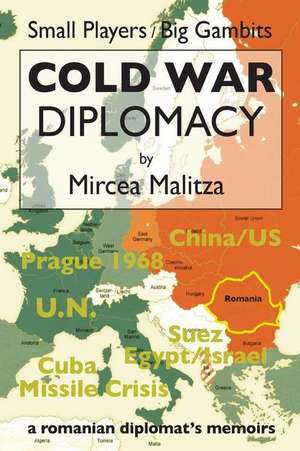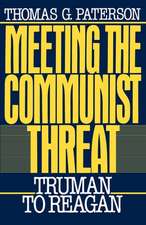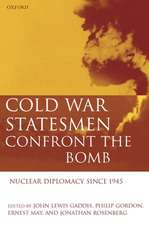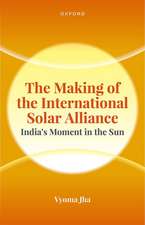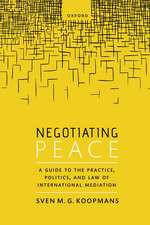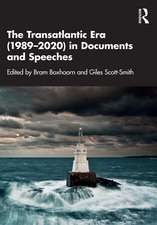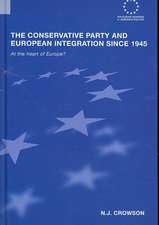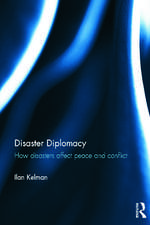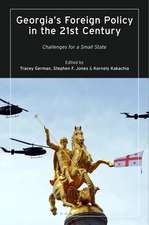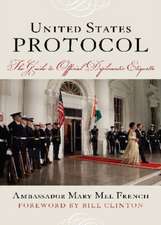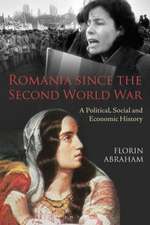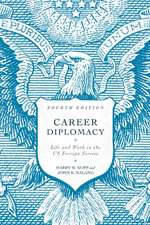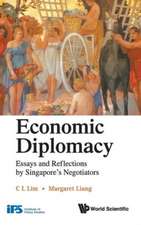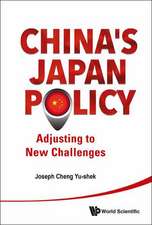Cold War Diplomacy
Autor Mircea Malitzaen Limba Engleză Paperback
Preț: 195.13 lei
Nou
37.35€ • 40.58$ • 31.39£
Carte disponibilă
Livrare economică 31 martie-14 aprilie
Specificații
ISBN-10: 1499556020
Pagini: 286
Dimensiuni: 152 x 229 x 15 mm
Greutate: 0.39 kg
Editura: Createspace
Descriere
Mircea Malitza, a career diplomat from Romania, witnessed and participated in major events during the entire Cold War period. An engaging personality, he earned respect from world leaders in the United States, Western Europe and emerging post-colonial countries. This account is noteworthy for its rare insights into a duality not always apparent when seen through the Cold War lens of Western eyes. There is, on the one hand, the subservience of Romania, and the entire Soviet Bloc, to Russia's dogmas and imperial aspirations. On the other hand, Romania's leaders crafted their own national 'independent path, ' often in highly creative and potentially dangerous ways. This served Romania well in opening doors to favorable Western contact, culminating, during the mid-1960s, in a period of 'liberalization' of internal and foreign policies. In time, though, these achievements were undermined by Nicolae Ceausescu's increasingly dictatorial and cruel slide into a moral and economic abyss. In these memoirs, Ambassador Malitza's recollections of the Cuban Missile Crisis are illuminating: he provides unique eye witness testimony to both the public posturing and tense behind-the-scenes diplomacy as the world was taken to the brink of nuclear war - he is the sole surviving member of the UN Security Council of that time. Revealing, too, are Malitza's accounts of the dramatic day-by-day events and secret conspiracies of the invasion of Czechoslovakia in 1968-and how Romania avoided a similar fate. The author reveals his encounters and professional friendships with world leaders. Private conversations with Averell Harriman - America's master diplomat with unique insights into Russia's policies - are unexpected. So, too, is the relationship with UN Secretary General U-Thant. A unique memoir written in a lively voice, and translated for this edition with great sensitivity to nuance and subtle humor, this book should please both the casual reader and the specialist.
